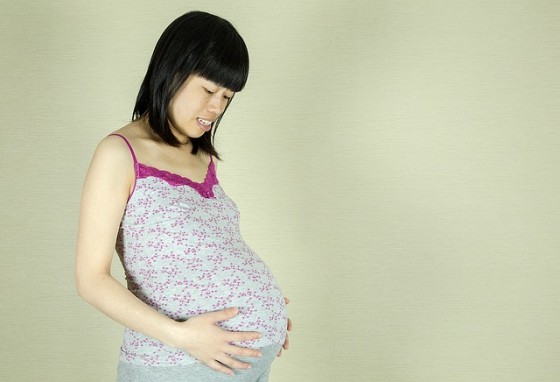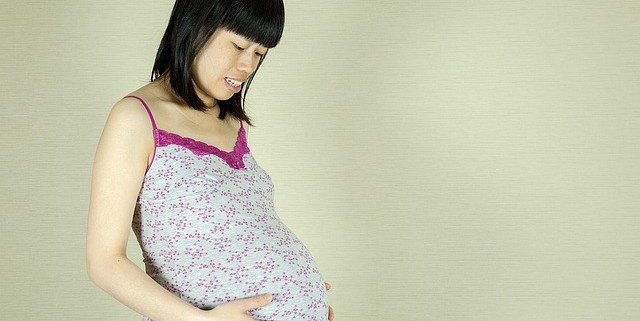Chickenpox And Pregnancy: What You Need To Know

Chickenpox used to be an almost expected part of childhood. Before 1995, there were more than 4 million cases per year – and anywhere from 8,000 to 18,000 hospitalizations and 100-150 deaths – with the vast majority affecting children. After 1995, when the vaccine came out, the number of annual cases dropped below half a million. While it’s easy to think of chickenpox as an irritating but mild childhood disease, that’s not necessarily the case if you’re pregnant. In fact, chickenpox and pregnancy can be an extremely dangerous combination.
Chickenpox Basics
Chickenpox, caused by the varicella-zoster virus, can affect people at any age. It’s highly contagious and causes the trademark rash as well as itching, fever, and tiredness. Most healthy children recover (although they may miss a week or more of school) but very young children, adults, and people with weakened immune systems tend to have much more serious and dangerous cases. In those populations, chickenpox can cause pneumonia, hepatitis, or encephalitis (potentially fatal swelling of the brain). Hepatitis and encephalitis are less common, but more than 1 in 5 adults that catch chickenpox will end up with pneumonia.
In addition, everyone that has had chickenpox is at risk for shingles, an extremely painful rash caused by the same virus (which sits dormant in your body after you’re infected).
There is a vaccine for chickenpox; it consists of an initial vaccine and a booster shot. The first dose is usually given when the baby is 12-15 months old with the followup at 4-6 years old, but you can get it at any time if you missed it in childhood. It’s 90% effective at preventing chickenpox and those few who do get the disease typically have very mild cases. Getting the chickenpox vaccine also helps protect those who cannot get the vaccine because they’re too young or have other health problems – the disease can’t spread if everyone is vaccinated.
Chickenpox And Pregnancy
So what’s the deal with chickenpox and pregnancy? Chickenpox is already more dangerous for adults than for children, meaning it’s more dangerous for pregnant women on that basis alone. You may contract pneumonia or another serious side effect, or you may have a high fever, all of which can affect the baby – maternal infection can cause brain damage and other health problems.
If you catch chickenpox within the first 2 trimesters, there is a small risk (about 2%) that your little one could develop congenital varicella syndrome (CVS), which can cause a variety of very serious side effects including:
- scarring
- malformed limbs
- microcephaly (an abnormally small head, usually accompanied by developmental disabilities)
- seizures
- physical and mental developmental disabilities
- vision problems
- low birth weight
- miscarriage or stillbirth
If you catch it closer to the end of pregnancy, your little one is likely to be fine – your body will create antibodies as you fight the disease and they’ll pass to the baby. Early in pregnancy the babies aren’t mature enough to be protected by those antibodies, but they reach that level of maturity by the third trimester. Note that babies affected by chickenpox in the third trimester may develop shingles during childhood.
However, if you catch chickenpox right around your due date, it’s much riskier. You may pass the virus on to your little one but deliver before your body can form and pass on the protective antibodies. Then the baby has a case of chickenpox and no ability to fight it. It’s called “neonatal varicella” and affects up to 30% of infants born to mothers that contract chickenpox just before delivery. As with adults, very young children are more prone to serious side effects such as hepatitis, pneumonia, and encephalitis. In addition, the disease causes a fever and may cause loss of appetite during a time when your little one needs to eat a lot in order to stay healthy. Your baby’s doctor may administer an antiviral medication to help ensure the symptoms are as mild as possible.
Also, remember that you may contract chickenpox through exposure to shingles, too – they’re the same virus, just different stages of the infection. So avoid anyone with either chickenpox or shingles!
What Should I Do?
If you’ve already had chickenpox or the chickenpox vaccine, there’s not much to worry about. You’re extremely unlikely to have an infection. If you haven’t had the disease or the vaccine and are pregnant or trying to become pregnant, talk to your doctor about your options for vaccination and your risk for chickenpox during pregnany. If you’re not sure whether you’re immune or not, your doctor can do a blood test to check.
If you’re not immune the vaccine is not a good option for you, the best thing you can do is scrupulously avoid exposure to the chickenpox virus. Chickenpox and pregnancy don’t mix – and besides, pregnancy is tough enough without being sick on top of it! If you have other children, make sure they’re vaccinated and keep an ear out for hints that other kids at school may have chickenpox. Fortunately, most children are vaccinated, meaning you’re less likely to be exposed than you would have been 20 years ago. Stay safe!








Leave a Reply
Want to join the discussion?Feel free to contribute!